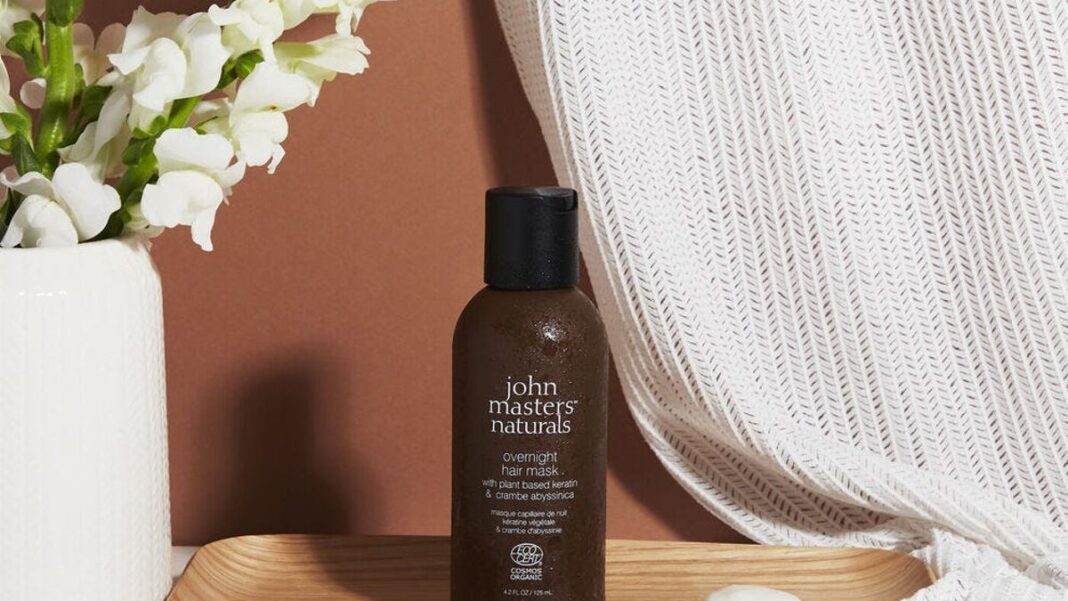Struggling with dry, damaged hair? It might be beneficial to try a hair mask.
Hair masks can remarkably revitalize dry and damaged locks, transforming them into soft and bouncy hair worthy of a commercial. These treatments provide deep conditioning, making them particularly useful if your hair frequently suffers from heat styling. Taking the time to apply a hair mask can significantly increase hydration and reduce dryness.
While not meant for daily use, hair masks can be a valuable part of your hair care routine when used occasionally. How do hair masks compare to regular conditioners, and when should you use them? We consulted experts for essential insights.
What benefits do hair masks provide?
Hair masks provide substantial hydration and enhance shine. They consist of a mix of “moisturizing agents, oils, proteins, and other beneficial ingredients,” which are mainly intended to nourish and restore your hair, explains Dr. Oma N. Agbai, MD, an associate clinical professor of dermatology and the founding director of Multicultural Dermatology and Hair Loss Disorders.
Regular exposure to environmental elements, coupled with frequent use of heat tools and hair color treatments, can damage the outer layer of the hair (known as the hair cuticle). Agbai points out that hair masks work to address this damage by penetrating the hair shaft and delivering moisture and nutrients that enhance both health and appearance.
“Individuals with dry, damaged, or color-treated hair typically see the most significant benefits from hair masks,” says Agbai. “Curly or coarse hair types often require additional moisture, so those individuals may also experience improvements.”
While hair masks can enhance the texture and overall quality of your hair, it’s important to note that they do not address hair loss issues, mentions Dr. Carolyn Goh, MD, a dermatologist and founder of the UCLA Hair and Scalp Disorder Clinic.
Are hair masks the same as conditioner?
Both hair masks and regular conditioners aim to protect hair from damage by sealing and restoring the hair cuticle, according to Goh.
However, they differ significantly in function. “Conditioners offer immediate softness, while masks focus on deep restorative qualities and long-lasting effects,” explains Agbai.
Furthermore, hair masks tend to have a higher concentration of beneficial ingredients. A quality hair mask contains a combination of proteins, humectants, oils, and emollients — look for ingredients like keratin, argan oil or coconut oil, glycerin, and shea butter, advises Agbai.
Additionally, while conditioners treat the hair’s surface, hair masks penetrate deeper into the hair shaft, adds Agbai.
When should you apply a hair mask, before or after shampooing?
This can vary by product. To ensure optimal application, always consult the instructions on the hair mask you’re using, suggests Goh.
“Some masks are intended for damp hair after washing, while others are recommended for use before shampooing for deeper conditioning,” Agbai explains.
Typically, hair masks should be left on for at least 10 to 30 minutes, although some products can even be applied overnight, notes Agbai. Using a warm towel or heated cap while the mask is on can enhance the absorption of its ingredients.
When you’re ready to rinse out the mask, be sure to wash thoroughly. “If not all the product is rinsed out, your hair may end up looking oily,” Agbai cautions.
How often should you use a hair mask?
Daily use of hair masks is generally not necessary. Agbai recommends using a hair mask once a week for most hair types. However, “if your hair is particularly dry or damaged, more frequent use may be beneficial,” she suggests.
That said, overusing masks can lead to unwanted buildup on the scalp and disrupt the balance of protein and moisture, so it’s wise to be cautious about frequency.
Ultimately, hair masks can be a fantastic addition to your hair care routine when your hair needs rejuvenation, effectively combating dryness and damage while providing deep nourishment and repair, says Agbai.
“Choosing an appropriate product and using it properly can lead to healthier and shinier hair,” she adds. “If you’re uncertain which mask is the best fit for you, consider consulting a hair care professional for tailored advice.”

